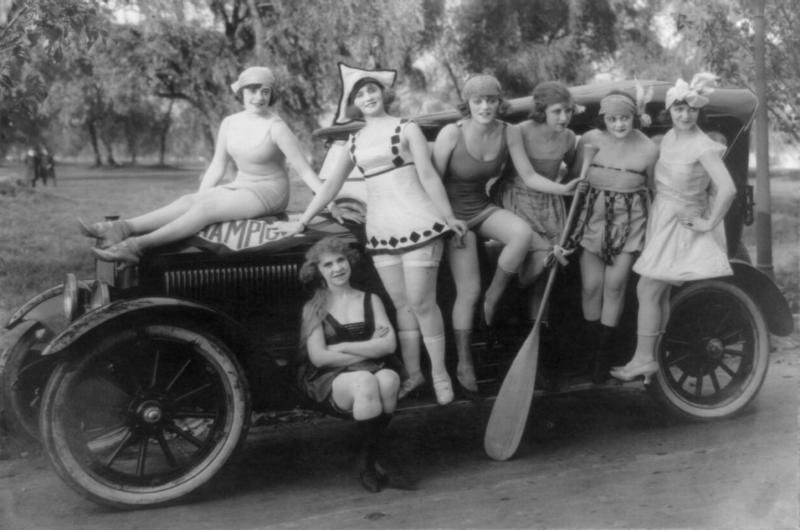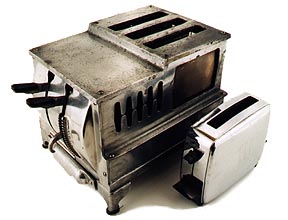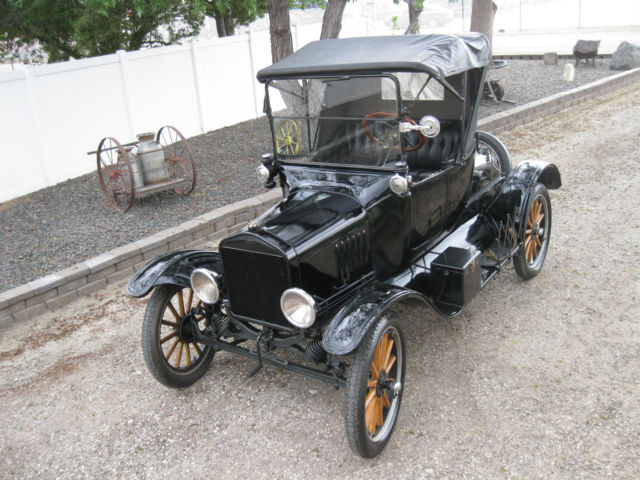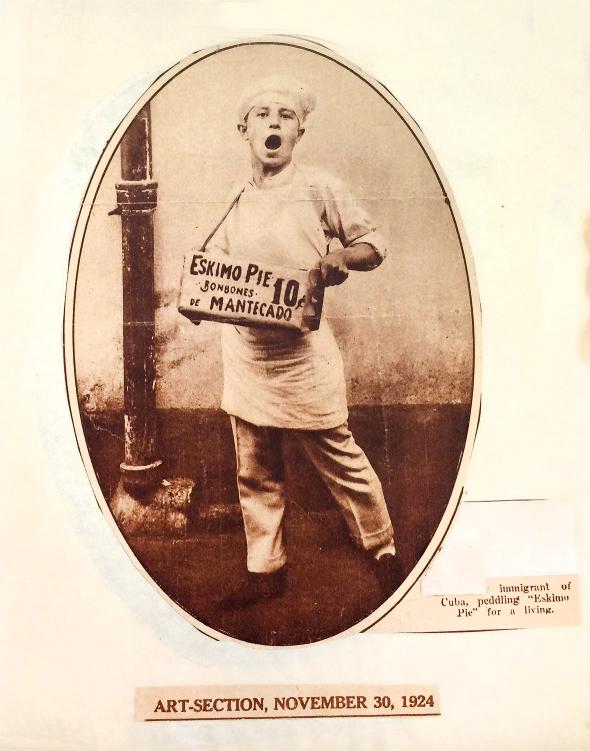1919

100 years ago is far enough in the past to represent "long ago", but not so long as to be ancient history. 100 years seems to be a time that almost within our reach, but still well before "our time".
Here are some events and trends from 1919.
First , the number one popular song from 1919, "After You've Gone", performed in a more modern setting by a young pianist, Stephanie Trick.
The original 1919 singer a woman named Marion Harris, was also the most popular recording artist of that year.
http://tsort.info/music/yr1919.htm
-
in 1919
A&W Root Beer has its beginnings in a roadside drink stand set up June 20 at Lodi, California, by local entrepreneur Roy Allen, who charges a nickel for a glass mug of his creamy concoction.
-
Homogenized milk gains success for the first time in the United States, at Torrington, Connecticut . Arthur G. Weigold of the Torrington Creamery has tried to sell the milk on his home-delivery routes, consumers accustomed to seeing a cream line at the top of their milk bottles have resisted the new product, but Weigold sells the milk to restaurateurs, many of whose patrons find it better tasting, more uniform in appearance, and more digestible than ordinary milk, although some object that it tastes sterilized
-
Minneapolis-born Stillwater, Minn., inventor Charles Strite files for a patent May 29 on an automatic pop-up electric toaster . Working as a mechanic at Stillwater during the Great War, Strite found that the toast served in the plant's cafeteria was often burned, so he devised a toaster with a heating element, a dual-lever design, a variable timing mechanism, and powerful springs that eject a piece of toast when it is done. 
-
On September 14 the Texas coast has its worst hurricane since 1900; Corpus Christi's high bluff and protective barrier island have given it a sense of security, but the big blow kills about 300 people and causes more than $20 million in damage.
-
Grand Canyon National Park is established by a February 26 act of Congress . The 673,575-acre park in Arizona includes the most spectacular part of the Colorado River's great 217-mile canyon seen by John Wesley Powell in 1869 and visited by the late Theodore Roosevelt in 1903.
-
Cooper Underwear Co. of Kenosha, Wis., introduces boxer shorts to make up for falling sales of its patented Kenosha Klosed Krotch union suit .
-
Georgia-born Chicago pianist Thomas A. (Andrew) Dorsey, 20, writes what he calls the first "gospel" songs, merging blues with religious music. Dorsey is a preacher's son, and although churches reject his creations as being too lively and irreverent he will persevere.
-
The New York Daily News (initially the New York Illustrated Daily News ) begins publication June 26 under the direction of Chicago Tribune veteran Joseph Medill Patterson, 40, a socialist who tells his editors, "Tell it to Sweeney—the Stuyvesants will take care of themselves."
-
Dial telephones are introduced November 8 at Norfolk, Virginia, by AT&T, which has earlier rejected dial phones but accepts them now under threat of a telephone operators' strike. So many switchboard operators are needed to run the nation's telephone system that the growth of phone ownership will soon outstrip the supply of available labor.
-
Electric starters become optional on the Model T Ford ; most Model Ts are still started by handcranking the engine.

-
Many U.S. life insurance companies file for bankruptcy to avoid paying claims on policies issued last year to people who subsequently died of influenza. The companies took advantage of the widespread flu panic to sell policies, not anticipating the extent of the epidemic, and claims have exceeded their resources.
-
A U.S. labor conference committee urges November 22 that the country adopt an 8-hour workday and a 48-hour week.
-
The Eskimo Pie has its beginnings in the "I-Scream-Bar," a chocolate-covered ice cream stick patented by Danish-born Latin teacher-candy store proprietor Christian Nelson of Onawa, Iowa, who solves the dilemma of schoolchildren who come into his shop and cannot decide whether to spend their nickels on candy or ice cream
all information taken from The People's Chronology James Trager. 3 rd ed. Detroit, MI: Gale, 2005.

Excellent post!
Much more interesting than the usual garbage that usually pollutes discussion site on the Internet!
BTW, there are several other good videos of Stephanie trick on YouTube.
And 1919 was the first year after WWI ended. Woodrow Wilson was still PotUS.
Wilson suffered a debilitating stroke in 1919.
I can see why "after You';re Gonme" was # 1 in 1919-- its a really catchy tune.
Interestingly, it was used to good effect in "Bioshock":
Bittersweet . . .
What an interesting post - thank you John. Some of the songs on that list linked by you were still being played occasionally in the 1940s.
Clever idea combining candy with ice cream!
Yeah - and from another side, my dad was born 8/16/19. Here he is, on leave, from Ft. Ord while attending OCS, with his new bride, in 1943. He then returned to the European front where he got wounded and was shipped back to the States. He served in the Army 'til 1968 and retired as a Col. at Ft. Leavenworth, KS, where he was the Sherman Army Airfield CO. Attended all the flight schools offered by the Army, became a Master Aviator and Instructor and was the primary "Chauffeur" for many of the Army's Generals, all of whom claimed his landings were like putting a feather to rest.
Nope, 100 years don't really seem that long when you have memories like mine of my family.
It's really amazing to think how much the world has changed in 100 years, probably as much as any time in world history. The average american in 2019 is, in many ways, better off then the richest American in 1919. We have better health care, better travel, better sanitation, better communications, better entertainment etc than John Rockefeller did 100 years. Sure, we can't afford the art or the real estate, but today's average American is better off in pretty much every way.
1919 is such an alien time. The Progressive president Woodrow Wilson re segregated the federal government. An Anarchist group orchestrated a mail bomb campaign. The Wilson administration's response to the Red Scare violated civil liberties left and right, highlighted by the Palmer raids that led to the arrests of about 10,000 people and presidential candidate Eugene Debs was put in jail. Race riots in Chicago killed dozens and injured hundreds, including my friends grandfather, a laborer who was shot and killed walking to work. Massive labor unrest led to strikes that disrupted the country and killed dozens.
100 years later, our country goes into paroxysms of hysteria over a smirking teenager.